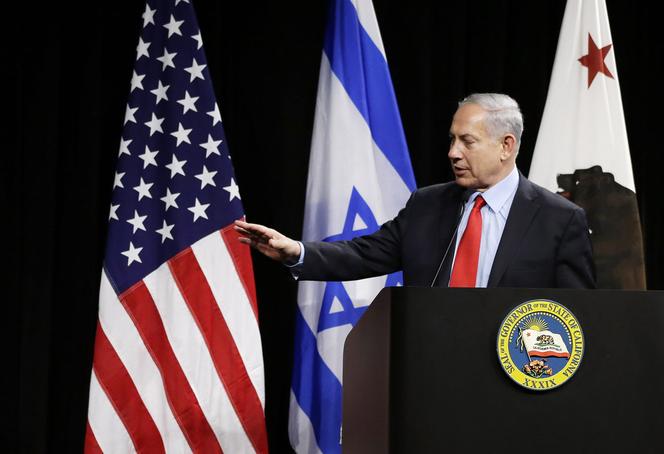


In the beginning was Jonathan. In 1976, Benjamin Netanyahu's elder brother was killed while leading an Israeli hostage rescue raid on the Entebbe airport, in Uganda. Three years later, Netanyahu and his father, Benzion Netanyahu, an ideologue of the Irgun (literally "the Organization," which conducted numerous attacks in Palestine from 1937 to 1948, including massacres of Arab civilians), founded the Jonathan Institute in Jerusalem to honor his memory. This institute designated terrorism, Arab terrorism that is, as absolute evil and connected it with the Soviet threat, against which Netanyahu proposed "an anti-terrorist alliance of all Western democracies." These theses were taken up by Ronald Reagan and his administration from 1981 to 1989 in the name of a "new Cold War" against the USSR's "evil empire," to which Yasser Arafat's Palestine Liberation Organization (PLO) was affiliated in this binary worldview.
During the first state visit by a French president to Israel in 1982, François Mitterrand mentioned both the PLO "fighters" and the prospect of a Palestinian state. Shortly afterward, during Israel's invasion of Lebanon, he did everything he could to ensure that the long siege of West Beirut did not lead to street battles, which Israel would certainly have won, but at an exorbitant cost. Conversely, France supervised the evacuation of Arafat and his fedayeen, convinced that this would provide Israel with an interlocutor when the time was right. But it was only after the PLO had recognized Israel that Arafat was received by Mitterrand at the Elysée Palace in 1989.
Four years later, Arafat signed the Oslo Peace Accords with Israeli Prime Minister Yitzhak Rabin, which Netanyahu, now leader of the opposition, condemned as an intolerable concession to "terror." Never mind that the USSR had disappeared, he stigmatized the PLO as the head of a terrorist hydra that had to be fought relentlessly. Netanyahu appeared at rallies chanting "Rabin is Arafat's dog" and even "Death to Rabin."
When Rabin was assassinated in 1995 by a terrorist – a Jewish, Israeli one – Netanyahu feared his political career was over. But he soon got back to hammering home the mantra of an inevitably Arab and anti-Western "terror" and managed to be narrowly elected to lead the government in 1996. During his first three years in office, he methodically stripped the Oslo Accords of their substance.
Returning to the Knesset (the Israeli parliament), he saw the Jonathan Institute's rhetoric triumph with the 9/11 attacks, and George W. Bush's "global war on terror." Netanyahu busied himself in Washington in 2002 to equate the PLO with Al-Qaeda while contributing to the disinformation campaign on weapons of mass destruction in Iraq. French President Jacques Chirac then denounced the blindness of an offensive to overthrow Saddam Hussein that would not prepare "the day after." France thus prevented the disastrous invasion of Iraq from leading to a global showdown between Islam and the West. As for Netanyahu, in 2006 he decided to celebrate at the King David Hotel in Jerusalem the 50th anniversary of the Irgun attack, which killed 91 people – including 41 Arabs, 28 Britons, and 17 Jews. The plaque that was laid on this occasion is probably the only one in the world to honor the perpetrators of an attack rather than their victims.
You have 45% of this article left to read. The rest is for subscribers only.
